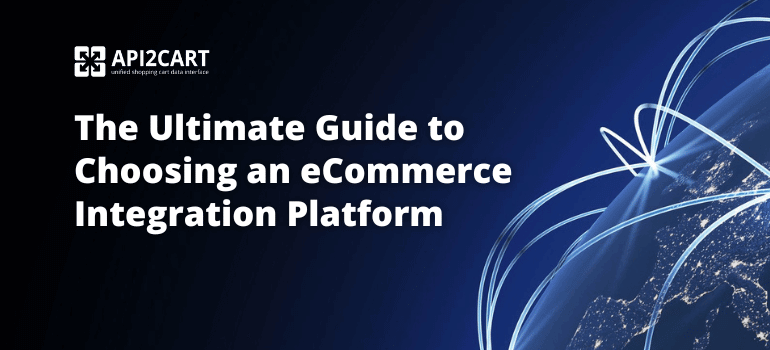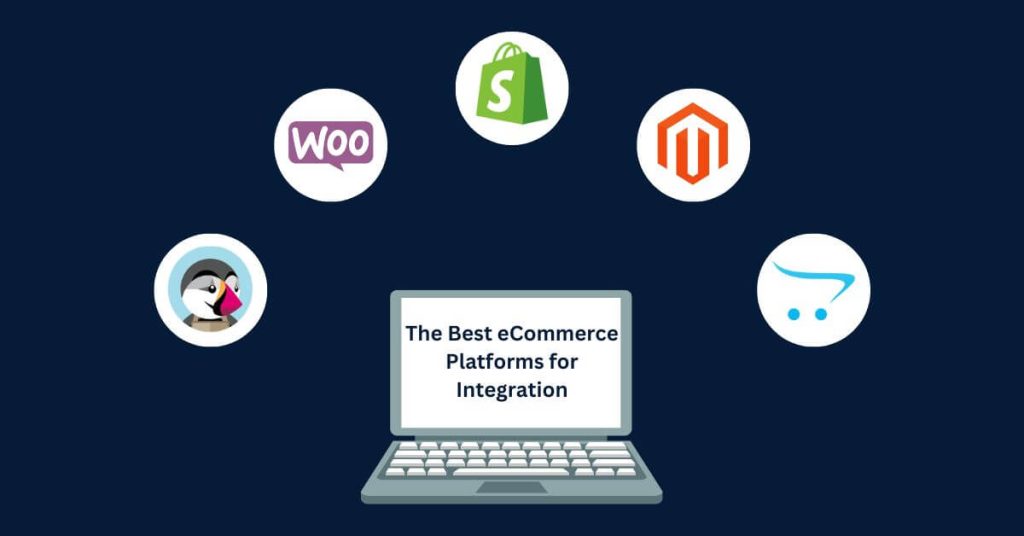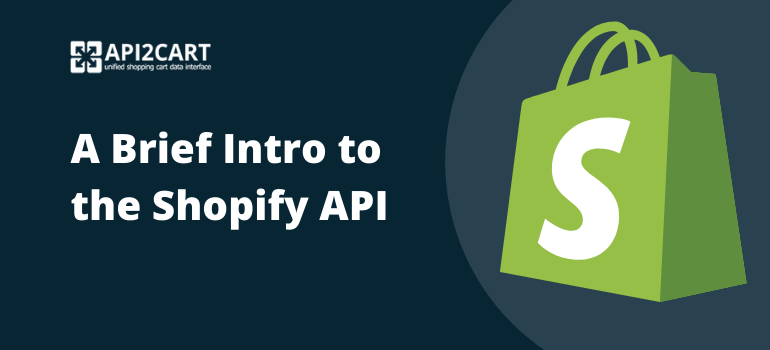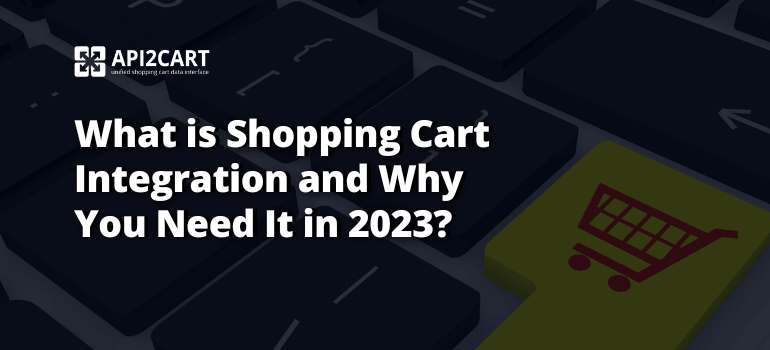
Running B2B software for eCommerce businesses? Streamline your operations by integrating with the most popular shopping platforms like Shopify, WooCommerce, Magento, and more via eCommerce integration platform. This article explores the top eCommerce platforms for connection and the challenges associated with building custom integrations. We'll also introduce API2Cart, a unified API solution that simplifies the integration process, saving you time and resources.
What Do You Need to Know about eCommerce Platform Integration?
The ever-growing eCommerce landscape presents both opportunities and challenges for B2B software providers. While the demand for your solutions is high, managing integrations with various eCommerce platforms can be a time-consuming and expensive task.
The development of eCommerce platform integration means the process of tying your application with various shopping platforms like Magento, Shopify, WooCommerce, etc. It allows your system to access the necessary data from your clients' online stores and process it by your software. It includes info on products, shipments, orders, customers, etc.
For example, if you are running a repricing software and your clients base their e-stores on Shopify, you need to be able to get the price info from Shopify. Without the integration with Shopify and access to such kind of data, your software won't be able to update prices on Shopify online stores and do the other essential operations.
As you can see, no matter what kind of software for online retailers you provide, you have to develop the connection with shopping platforms that your clients use.
The process of eCommerce integration with only one platform can take months of developers' time. It requires previous platform investigation, integration development, and its further support and upgrades. So, you must consider that it is necessary to choose the best platforms for connection with them or find the service that will help you provide this process more quickly.
Firstly, let's take a closer look at the most popular eCommerce platforms for integration, according to API2Cart research.
Top 8 eCommerce Platforms for Integration

- Shopify
- Etsy
- WooCommerce
- OpenCart
- Magento
- PrestaShop
- BigCommerce
- CS-Cart
Shopify claims to be the best and secure shopping platform. The number of active stores running on this platform is over 1,500,000. Primarily, this eCommerce platform is highly popular in the USA (more than 1,000,000 stores).
Shopify provides high-quality service at an affordable price. Store owners choose it for built-in marketing tools, tech support, flexibility in setup, and access to automatic shipping rates. Shopify supports more than 50 languages.
The connection of your app with Shopify means that you will be able to boost your clients' number several times. Also, it's a good option if you are targeting the USA market.
However, there is a significant number of challenges connected with this process. For example, the integration with Shopify takes approximately one month. Also, Shopify releases its new API version every three months, and the changes can affect your software integration with this platform.
Etsy is a popular eCommerce platform, especially among the dropshippers. The main clients of this shopping platform are those who sell vintage items and handmade crafts. Etsy allows uploading up to five images for each item and adding videos. It provides detailed statistics to its clients.
According to Statista, more than 2 million sellers from 234 countries sell their goods through this platform.
Even though, Etsy API provides an easy-to-use RESTful interface, the eCommerce platform integration with it takes from 4 to 6 weeks. It also requires the help of highly experienced professionals.
WooCommerce powers about more than 30% of all the online stores. It is an open-source eCommerce platform with a customer base of 3,000,000+ people. WooCommerce is built on WordPress and provides free and paid extensions. It allows selling different types of goods, from physical products to content and appointments.
WooCommerce has a few API versions. What does it mean for you as a software provider? Every time a new version of this eCommerce platform appears, you need to make the changes in your code. Consequently, it requires a lot of time and effort. It is hard to develop the integration with the oldest and the newest WooCommerce APIs at once. However, it is a must-have as e-store owners that are using the earliest WooCommerce versions may have not a desire to upgrade. So, if you are willing to satisfy all WooCommerce e-store owners, you need to have a smooth connection with all its API versions.
With seven years of experience and 350,000 satisfied store owners, OpenCart proves to be one of the best solutions for online retailers. This eCommerce platform has a huge success in the USA (120,000 stores), Russia (56,000 stores), and the United Kingdom (13,000 stores). The main features of OpenCart: free download and updates, built-in SEO, over 13000 modules and themes, multiple payment gateways.
The integration of your app with OpenCart will require considerable expenses and detailed learning of its architecture. This platform has a significant number of versions. The latest one is OpenCart 3.0.3.2 that was released in April 2019.
Covering 26% of all the online stores across the world, Magento allows you to reach out to more than 240,000 potential clients. Magento is an open-source platform. It offers customizable design, a vast number of product attributes, product comparison, etc.
The difficulties in integration with Magento are connected with EAV (Entity-Attribute-Value) database model, 40+ various tables with info on products and categories, data import issues, the inaccuracy of API documentation.
PrestaShop allows building online shops very quickly. It enables to use multiple payment options and detailed analytics. PrestaShop supports 45+ languages. This shopping platform is easy to set up and use. Nowadays, more than 260,000 store owners use Prestashop.
Here are the countries that use PrestaShop platform the most: Spain, the United Kingdom, the United States of America, Australia, and Canada.
The integration with PrestaShop allows you to increase the number of your clients and expand your software sales throughout the world.
BigCommerce is all-in-one eCommerce platform. It is popular among growing businesses and startups. More than 90,000 online stores from 65 countries are based on the BigCommerce platform. This shopping platform provides customizable design themes, professional SEO tools, abandoned cart saver, multiple payment options.
BigCommerce has detailed API documentation. However, the process of integration with it is not so easy as you can think. It requires strong technical experience and expertise.
CS-Cart rules over the eCommerce market for about 13 years. More than 40,000 of eCommerce stores are built on this platform. CS-Cart has a drag-and-drop user interface that is highly appreciated by its customers. It provides a wide variety of themes and various payment methods.
CS-Cart has a mobile application for Android and iOS systems. Also, it provides the possibility to use it's multilingual and multi-currency functionality.
CS-Cart has a RESTful API and four methods to view and modify objects: Get, Put, Post, Delete. It provides detailed API documentation available for experienced developers.
Why Custom Integration is Challenging
Developing custom integrations for each platform is resource-intensive. It requires:
- Months of developer time
- In-depth knowledge of each platform's architecture
- Ongoing maintenance to address API updates and platform changes
What eCommerce Integration Platform to Use
There are multiple eCommerce platforms your software can integrate with. However, if you want to succeed in the B2B software market and expand the number of your potential customers, we recommend to develop eCommerce platform integration with the ones we’ve listed above.
You must keep in mind that the process of integration involves technological complexity, a huge budget, and months of your developers’ work. However, you can try a special eCommerce integration platform solution that will help you to overcome such difficulties.
API2Cart provides a unified API for integration with more than 40 eCommerce platforms at once. This list includes Shopify, WooCommerce, Magento, OpenCart, PrestaShop, and other popular platforms. All you need to do is to connect your app with API2Cart and enjoy the result. You will be able to work with all the data required from your clients’ stores. It includes managing the information connected with products, orders, shipments, customers, baskets, etc. Moreover, you won't need to deal with the shopping platform integration support and maintenance, as API2Cart takes care of this.
Here's how API2Cart streamlines the integration process:
- Single Integration Point: Connect your software once to API2Cart and access data from all supported platforms.
- Reduced Development Time: No need to build and maintain custom integrations for each platform.
- Simplified Maintenance: API2Cart handles API updates and platform changes, freeing up your resources.
- Extensive Functionality: Manage product information, orders, customers, and more across all connected platforms.
- 24/7 Support: Get expert assistance whenever you need it.
API2Cart has more than 100 API methods, detailed API Docs, and 24/7 customer support. Integration with eCommerce platform via API2Cart can bring a lot of benefits for shipping, inventory, warehouse, repricing, marketing automation, and the other software vendors.
Ready to overcome eCommerce integration challenges and expand your reach? Sign up for a free API2Cart demo today and experience the benefits of a unified integration solution. Our team is here to help you get started and answer any questions you may have.




WilliamCalry
October 26, 2021 on 9:30 pm
We are a gaggle of volunteers and opening a new scheme in our community. Your website offered us with useful information to work on. You’ve done a formidable activity and our whole neighborhood will be thankful to you.
Product_mxPi
August 6, 2023 on 5:47 pm
Read Professional Reviews of Products